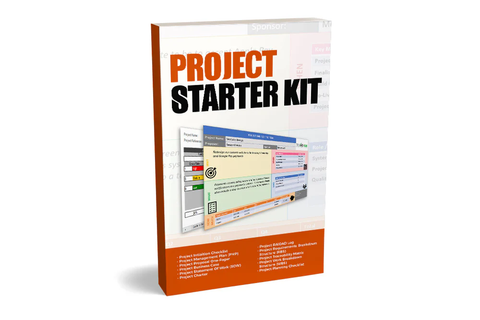Communication Plan Template Free Download
Project Communication Plan
Project management is a profession whose success strongly relies on effective communication. In fact, it is acknowledged that project managers spend 80% of their time communicating. It is no surprise then that one of the most important artifacts when planning a new project is the Communication Management Plan.
You may be tempted to think that, for someone used to communicate that much, a plan wouldn’t be needed. Make no mistake: effective communication is not as easy to accomplish as it may seem. George Bernard Shaw said it best: ‘’The single biggest problem in communication is the illusion that it has taken place.’’
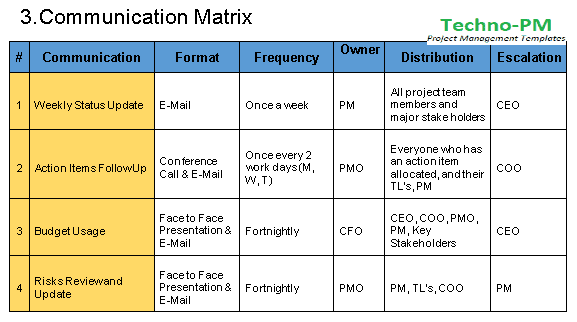
Communication Plan Template
What is a Communication Management Plan?
Communication is an exchange where two parties use symbols, body language, or words to convey a message between a sender and a recipient. Who this recipient is or what mechanisms to use to ensure that the message is clearly understood are elements that one can find in a Communication Management Plan. Effective communication is planned communication!
A Communication Management Plan is a key document that identifies the communication requirements of the project’s stakeholders and defines and plans how communication about and on the project should occur to meet these requirements. This project management communication plan template is developed by the Project Manager during the project's planning phase. It can be an entity on its own or be part of the wider Project Management Plan. It can adopt different formats but is usually created as a document or a spreadsheet. Like any other management documents, it should be validated by key stakeholders, such as the Sponsor.
The Benefits of Having a Communication Management Plan Include:
- Sets the right expectations – Everyone knows what is expected of them.
- Ensures consistency in the message – Everyone is singing from the same hymn sheet.
- Just the right communication – Everyone receives just the information they need rather than information overload or no information at all.
- Enables feedback – Everyone has an opportunity to have their voice heard.
- Gains buy-in – Everyone who is kept in the loop is less likely to criticize the project.
What Are The Key Elements of a Communication Management Plan?
For small projects, communication can be quite simple. However, we don’t always have the luxury to be managing just small projects, and, in that case, a more robust Communication Management Plan can be handy. Regardless of its size or format, a Communication Management Plan should clearly define how communication is going to be handled in the project; hence, it typically contains the following key elements:
Purpose
Defines the purpose and scope of the communication exercise. What is it that you are trying to achieve by having a Communication Management Plan? Does it apply to the full project or to a particular stage or deliverable (e.g., communication with suppliers or communication about training)
Who
Identifies the audience of the communication. Who needs to be informed? This can be individuals or groups, and there is a benefit in aligning this list to your Stakeholder Management Plan to ensure that all relevant communication needs stakeholders being addressed.
What
Define what messages are to be passed to the recipients. These should be short, easy to understand, and, as importantly, easy to remember.
When
Based on your stakeholders' communication requirements, there are people you may want to provide a project update daily, where others may only need to be informed monthly. Defining the appropriate frequency of communication is as important as who to inform.
How
Different mechanisms can transmit the message; you don’t need to limit yourself to emails and meetings! Consider the profile of each of your stakeholders and select a communication method accordingly: if they are ‘visual’ people and lose focus quickly, you may want to create a colorful dashboard; if, on the other hand, they enjoy the conversation, setting up a meeting or giving them a phone call will do the trick.
Tools and Techniques
Some organizations have a preference for a certain technique or tool to be used when communicating. Consider using collaborative solutions such as project sites in SharePoint or Yammer.
Standards
Mature organizations usually have communication standards and templates, so you don’t need to reinvent the wheel when creating the Communication Management Plan for your new project. Just contact your Project Management Office (PMO) and ask for a little help.
Communication Matrix
A communication matrix shows who is expected to communicate with whom and may prove very helpful in large-scale projects where a multitude of stakeholders co-exist. Think of suppliers, the CEO, or the press – should Joe from the Operations team be allowed to contact them directly? Probably not.
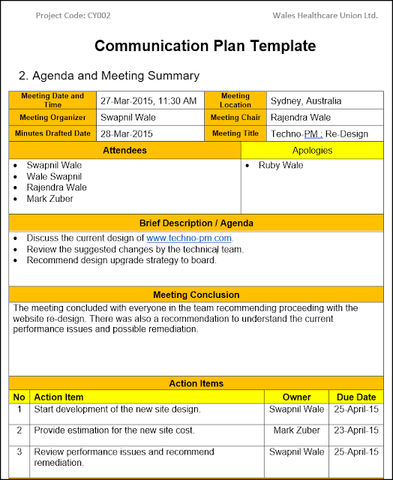
Communication Plan Template
Best Practices When Writing Communication Management Plan
Now that you know the contents that form a Communication Management Plan, here are some hints and tips to get you started:
Don’t Make Assumptions
Assumptions are risky business if proved wrong; hence, it’s always better to validate them in advance or even removed them. Instead of assuming what your key stakeholders may need and when just ask them. Not only will you have a more accurate communication plan, but they will also appreciate your concern, and you improve your chances of their buy-in.
Check Stakeholder Management Plan
Remember that document where you listed all your key stakeholders, their power and interest on the project, and their current level of engagement? It’s a good idea to check it now and see how closely it aligns with your Communication Management Plan. In fact, you can even combine them or develop them at the same time.
Be SMART
Specific, Measurable, Achievable, Realistic, and Timely in your messages. Check out how the SMART template can be used to set smart goals and objectives.
Assess Success
You won’t know if your plan is being successful unless you define what success looks like. Link the Communication Management Plan's success to the Stakeholder Management Plan; after all, they are the ones you are trying to please. Success will manifest in their improved engagement levels; hence, if you see someone now turning up to all project meetings or if your project is featuring in this month’s issue of the organization-wide newsletter, you are on the right track.
Adapt
While the Communication Management Plan is a reference document for the project team, it is also a living document. If your communication strategy is not working as intended, don’t be afraid to go back and revisit it.
Communication Management Plan Template
A good CMP (Communication Management Plan) will outline the communication framework and serve as a guide throughout its lifecycle. It should also include a communication matrix and outline the methodology of summarizing meetings and communicating their key takeaways. It can also include a team directory, even though most companies have online tools which replace this table.
Agenda and Meeting Summary
Agenda: A short agenda must be attached to each meeting request, outlining the meetings’ goal, chairperson, attendees, and expected outcome. MoM (Minutes of Meeting): A template of the MoM, which needs to be filled in after each meeting. Action Items: It is recommended to use the RACI matrix for this purpose; however, a simplified version with only the “responsible” party is also acceptable.
RACI Matrix
This RACI matrix presents which do what (Responsible), who approves it (Accountable), who may give recommendations during the process (Consulted), and who are kept in the loop during the process (Informed).
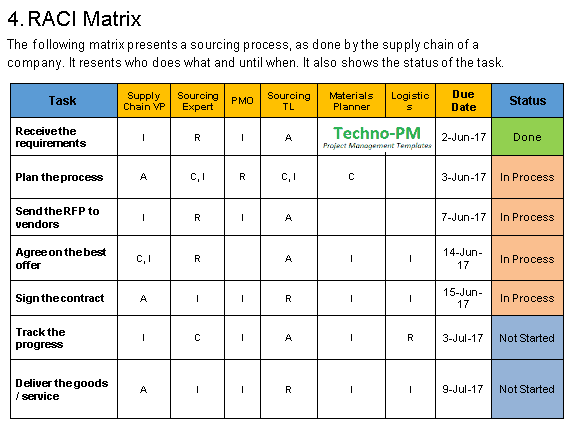
RACI Matrix Comms Plan
Communication Matrix
Communication: What needs to be sent as an attachment. Format: Most communication nowadays is done with soft copies via E-mails. However, this may change due to regulations or convenience. The communication matrix can also clarify this. Frequency: The communication matrix must also detail how many times a day/week/month, etc., the communication will be distributed. Owner: Who summarizes and sends out the communication. Distribution: who should receive the communication; usually, this is team-specific, not personal. Escalation guidelines: If an escalation is required, the communication matrix outlines who the correct person is.
Escalation Matrix
When a disagreement occurs, or a task on the project's critical path is lagging and denying the team from continuing their successor tasks, this will be used. The trigger finger on this shouldn’t be light and should only be used when all else fails.
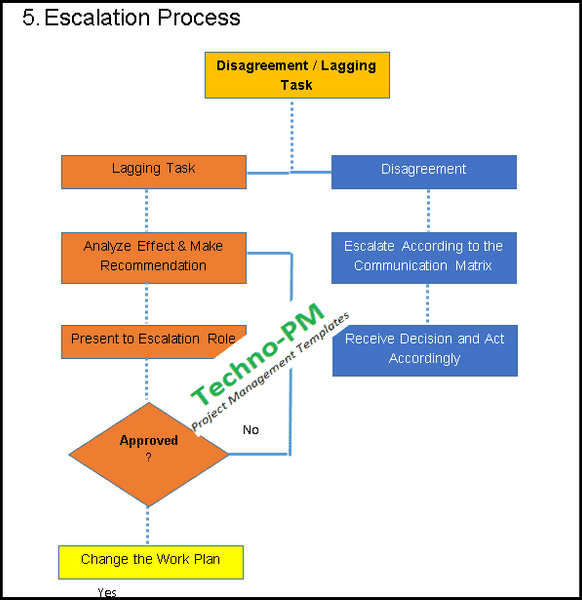
Escalation Process
Finally, remember to communicate the Communication Management Plan. To have a communication strategy in place is a great achievement – test your plan by starting with the plan itself. Good project management is much about good communication. So, communicate, communicate, communicate!
You may also be interested in reading the Guide to Project Communication Plan and Strategic communication plan template.




